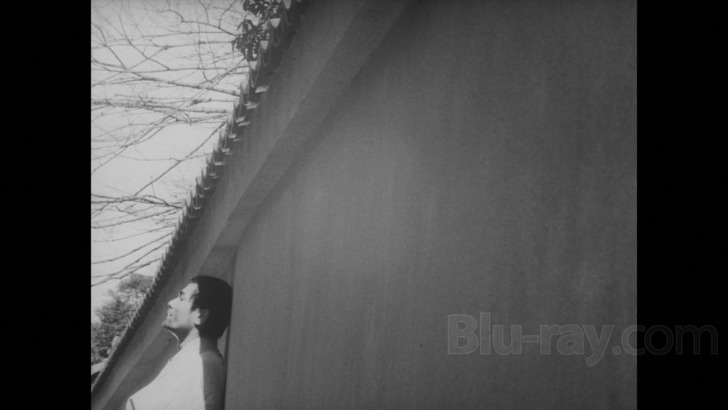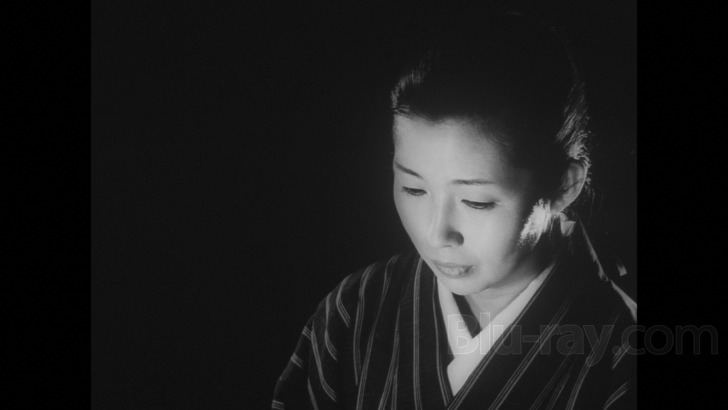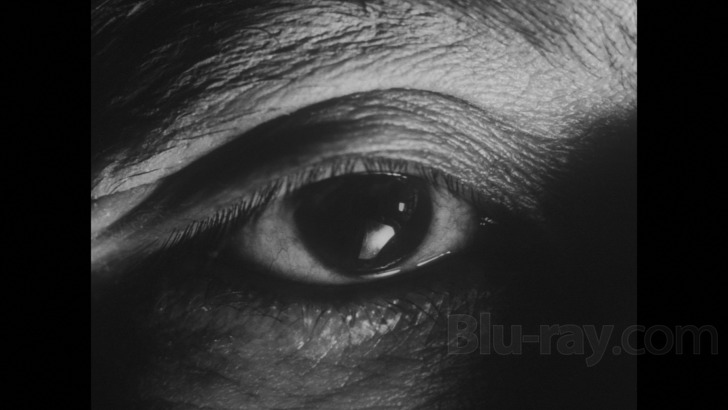Coup d’état Blu-ray Movie
HomeCoup d’état Blu-ray Movie 
戒厳令 / Blu-ray + DVDArrow | 1973 | 110 min | Not rated | No Release Date

Price
Movie rating
6.8 | / 10 |
Blu-ray rating
| Users | 0.0 | |
| Reviewer | 4.0 | |
| Overall | 4.0 |
Overview
Coup d’état (1973)
A freestyle biopic of Ikki Kita, the ultranationalist intellectual whose ideas inspired the failed military coup in 1936.
Starring: Rentarô Mikuni, Yasuo Miyake, Akiko Kurano, Tadahiko Sugano, Masako YagiDirector: Kiju Yoshida
| Foreign | Uncertain |
| Drama | Uncertain |
| Biography | Uncertain |
| History | Uncertain |
Specifications
Video
Video codec: MPEG-4 AVC
Video resolution: 1080p
Aspect ratio: 1.33:1
Original aspect ratio: 1.37:1
Audio
Japanese: LPCM Mono
Subtitles
English SDH
Discs
Blu-ray Disc
Two-disc set (1 BD, 1 DVD)
DVD copy
Playback
Region A (B, C untested)
Review
Rating summary
| Movie | 4.0 | |
| Video | 3.5 | |
| Audio | 3.5 | |
| Extras | 2.0 | |
| Overall | 4.0 |
Coup d’état Blu-ray Movie Review
Reviewed by Jeffrey Kauffman May 10, 2017Note: This film is available as part of the box set Kiju Yoshida: Love + Anarchism.
A lot of the forum activity on this site as well as others devoted to home theater aficionados tends to be filled with complaints about this or that
release, or even the state of physical media in general. I’d like to “accentuate the positive” for a moment, by acknowledging the fact that without
a
bevy of so-called “niche” labels like Criterion, Kino Lorber, Olive Films and, yes, Arrow (and its Arrow Academy imprint), those of us who love all
sorts
of different films would be much less significantly blessed with releases than we actually are, despite whatever technical issues arise from time to
time with any given release. Consider for a moment the name of Kiju Yoshida, an
arugably lesser remembered Japanese director whose name may not be recognized by many and which in fact was not even in our database here
at
Blu-ray.com until I added it for the purposes of this review and the reviews of the films in this set. It’s almost astounding in a way that any label
would devote its resources to releasing films by someone whose name doesn’t rise to traditional “marquee” levels, and for the efforts of labels like
Arrow who do offer sets like this one, I for one would just like to take a moment to offer some sincere appreciation. Yoshida, whose given name
was
Yoshishige, was born in 1933 and is still among the living (at the age of 84) as these reviews are being written. While Yoshida may not be as well
known in the United States as some of his Japanese contemporaries, in France he’s lionized as one of the most important directors of the post-
World
War II era, and that recognition may be especially understandable when placed within the context of what is kind of humorously referred to as the
Shōchiku Nouvelle Vague, or in more common vernacular, the Japanese New Wave (with a reference to the specific studio where Yoshida
and
some of his cohorts worked). The structural (or deconstructural, as the case
may be) proclivities of the French New Wave are shared by Yoshida, at least in the three films presented in this set, all of which defy traditional
narrative methods and which employ typical Nouvelle Vague approaches like quasi-montage and disjunctive editing techniques. The three
films in this set span a few years bridging the late sixties to the early seventies, and all three of them are considered part of a kind of loose trilogy
which offers a somewhat subversive political perspective with a similarly anarchic style.

For those who watch the three films in this set in chronological order (including the two different versions of Eros + Massacre), Coup d’état may come as an almost welcome sigh of relief. Both Eros + Massacre and (perhaps especially) Heroic Purgatory offered intentionally opaque approaches, with shifting timelines and stories that defy easy description, let alone understanding. By contrast, Coup d’état is almost shockingly straightforward, proving that Yoshida can tell a comprehensible story when he has a good mind to.
Many films have explored simmering political tensions of the 1930s, and some have even detailed the eruptive tendencies between Japan and China, but Coup d’état deals with what is (in Western countries, at least) a little known uprising in 1936 in Japan where some rogue elements in the Japanese military attempted a so-called “reorganization” of the government that has since become known as the February 26 Incident. Providing a kind of philosophical underpinning for this attempt was a far right anti-royalist named Ikki KIta (Rentarō Mikuni). Kita’s actual historical connection to the uprising is still a matter of some dispute, something that Yoshida utilizes to depict the travails of an activist suddenly caught up in something much larger than perhaps even he imagined might happen.
As David Desser mentions in his introduction to the film, while things are relatively straightforward, that doesn’t mean that Yoshida completely eschews the elliptical qualities that make ferreting out at least some elements of both Eros + Massacre and Heroic Purgatory so challenging. The film (as also mentioned by Desser) doesn’t focus exclusively on 1936 tensions and in fact spends considerable time on another fracas that broke out several years previously. But all in all this is a generally unadorned entry in Yoshida’s filmography, at least from a purely storytelling perspective. The film is still a marvel of Yoshida’s often extremely unusual framing approaches, and it also has some really interesting uses of editing and quasi-montage that give it a very distinctive atmosphere.
Coup d’état Blu-ray Movie, Video Quality 

Coup d'état is presented on Blu-ray courtesy of Arrow Academy with an AVC encoded 1080p transfer in 1.33:1. Arrow provides only a kind of generic statement about these transfers in its insert booklet:
The transfers of Eros + Massacre, Heroic Purgatory and Coup d'état were supervised and approved by Kiju Yoshida, and supplied to Arrow Films on master tape via Carlotta Films, France.While not overly problematic in any major way, Coup d'état looks just slightly "dupey" at times, at least when compared to the crisper looking Heroic Purgatory and (at least the Theatrical Version of ) Eros + Massacre. There's a very slight fuzziness evident, especially with regard to some of the darker gradients, as well as slightly inconsistent contrast that adds a kind of milkiness to lighter scenes (most notably a lot of the outdoor material, which, while not "overexposed" in the way David Desser addresses in some of his comments, has a slightly blanched quality to it). That said, close-ups can still offer substantial amounts of fine detail (see screenshot 3). This film also exhibits a bit more wobble in terms of credits and interstitial text cards than the two other films.
Coup d’état Blu-ray Movie, Audio Quality 

As with all three films in this set, Coup d'état features both an LPCM Mono track (in the original Japanese) as well as a somewhat anachronistic score, in this case a kind of electronic set of cues by Sei Ichiyanagi which encounters a little brittleness and even minor distortion at times. Dialogue makes it through the gauntlet largely unscathed, and, while narrow, the track delivers the spoken elements with decent clarity and precision.
Coup d’état Blu-ray Movie, Special Features and Extras 

- Introduction by Kiju Yoshida (1080p; 5:22) features Yoshida discussing the real history informing the film.
- Introduction by David Desser (1080p; 8:50) is less elliptical than Desser's intros for the two other films, anchored in the real life background that provides the foundation for this film.
- Commentaries by David Desser
- Chanting (1080p; 9:24)
- Slogans (1080p; 2:22)
- Plans (1080p; 3:20)
- Crying (1080p; 1:27)
- Razor (1080p; 5:15)
- Coup (1080p; 4:54)
- Arrest (1080p; 9:15)
- Theatrical Trailer (1080p; 2:58)
Coup d’état Blu-ray Movie, Overall Score and Recommendation 

While the story is at least a bit easier to follow in this film than in the two others in the Yoshida set, it's Yoshida's stylistic tendencies which once again continue to amaze and perhaps confound. The way Yoshida continually subverts normal film language, especially in some of his framing choices, means that even if this is "straightforward" on a surface level, there's a lot to take in just in terms of how the film looks. While technical merits are certainly not overly problematic, this probably has the least pleasing video and audio of the bunch. As is typically the case with Arrow, the supplements, while not numerous, are very enjoyable. Highly recommended.
Similar titles
Similar titles you might also like
(Still not reliable for this title)

Heroic Purgatory
煉獄エロイカ
1970

Eros + Massacre
エロス+虐殺
1969

Never Look Away
Werk ohne Autor
2018

Of Gods and Men
Des hommes et des dieux
2010

No
2012

Napoléon
Napoléon vu par Abel Gance
1927

The Story of Adele H.
1975

City of Life and Death
南京!南京! / Nanjing! Nanjing!
2009

Danton
1983

Confucius
孔子 / Kong zi
2010

The Battle of Algiers
La battaglia di Algeri
1966

Out 1
Out 1, noli me tangere
1971

A Hidden Life
2019

Sarah's Key
Elle s'appelait Sarah
2010

La Marseillaise
The Marseillaise
1938

The Two of Us
Le vieil homme et l'enfant | 50th Anniversary Edition
1967

Strike
Стачка | Stachka | Remastered Edition
1925

Twenty-Four Eyes
二十四の瞳 / Nijûshi no hitomi
1954

Poem
Uta / 哥
1972

The Passion of Joan of Arc
La passion de Jeanne d'Arc / 24 and 20 frames per second versions
1928